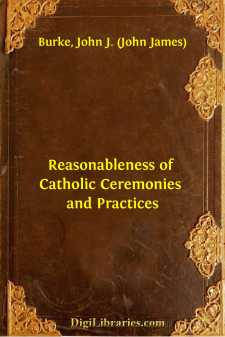Categories
- Antiques & Collectibles 13
- Architecture 36
- Art 48
- Bibles 22
- Biography & Autobiography 813
- Body, Mind & Spirit 142
- Business & Economics 28
- Children's Books 14
- Children's Fiction 11
- Computers 4
- Cooking 94
- Crafts & Hobbies 4
- Drama 346
- Education 46
- Family & Relationships 57
- Fiction 11828
- Games 19
- Gardening 17
- Health & Fitness 34
- History 1377
- House & Home 1
- Humor 147
- Juvenile Fiction 1873
- Juvenile Nonfiction 202
- Language Arts & Disciplines 88
- Law 16
- Literary Collections 686
- Literary Criticism 179
- Mathematics 13
- Medical 41
- Music 40
- Nature 179
- Non-Classifiable 1768
- Performing Arts 7
- Periodicals 1453
- Philosophy 64
- Photography 2
- Poetry 896
- Political Science 203
- Psychology 42
- Reference 154
- Religion 513
- Science 126
- Self-Help 84
- Social Science 81
- Sports & Recreation 34
- Study Aids 3
- Technology & Engineering 59
- Transportation 23
- Travel 463
- True Crime 29
Mary, Help of Christians And the Fourteen Saints Invoked as Holy Helpers: Instructions, Novenas and Prayers with Thoughts of the Saints for Every Day in the Year
Description:
Excerpt
CHAPTER I
The Veneration and Invocation of Saints
IN THE Creed of the Council of Trent, which the Catholic Church places before the faithful as the Rule of Faith, we read: "I firmly believe that the saints reigning with Christ are to be venerated and invoked."
The Church therefore teaches, first, that it is right and pleasing to God to venerate the saints and to invoke their intercession; and second, that it is useful and profitable to eternal salvation for us to do so.
The veneration of the saints is useful and profitable to us. Men conspicuous in life for knowledge, bravery, or other noble qualities and unusual merits are honored after death. Why, then, should Catholics not be permitted to honor the heroes of their faith, who excelled in the practice of supernatural virtue and are in special grace and favor with God? That this veneration is profitable to us is evident from the fact that the example of the saints incites us to imitate them to the best of our ability.
The veneration of the saints is not only in full accord with the demands of reason, but we are, moreover, enjoined explicitly by Holy Scripture to venerate the memory of the holy patriarchs and prophets: "Let us now praise men of renown, and our fathers in their generation" (Ecclus. xliv. 1). "And their names continue for ever, the glory of the holy men remaining unto their children" (Ecclus. xlvi. 15).
Reason and Holy Scripture, then, are in favor of the veneration of the saints. We find it practised, therefore, also in the early Church. She was convinced from the very beginning of its propriety and utility. As early as the first century the memorial day of the martyrs' death was observed by the Christians. They assembled at the tombs of the sainted victims of pagan cruelty and celebrated their memory by offering up the Holy Sacrifice over their relics. We know this not only from the testimony of the earliest ecclesiastical writers, as Origen, Tertullian, and St. Cyprian, but also from the history of St. Ignatius the Martyr (d. 107), and of St. Polycarp of Smyrna (d. 166). Over one hundred panegyrics of various saints written by St. Augustine are still extant.
And why should it not be right and useful to invoke the intercession of the saints? Everybody deems it proper to ask a pious friend for his prayers. St. Paul the Apostle recommended himself to the prayers of the faithful (Rom. xv. 30), and God Himself commanded the friends of Job to ask Him for His intercession that their sin might not be imputed to them (Job xlii. 8). How, then, can it be wrong or superfluous to invoke the intercession of the saints in heaven? The saints are willing to invoke God's bounty in our favor, for they love us. They are able to obtain it for us, because God always accepts their prayer with complacency. That they really hear our prayer and intercede with God for us is clearly shown by many examples in Holy Scripture. And if, according to the testimony of St. James (v. 16), the prayer of the just man here on earth availeth much with God, how much more powerful, then, must be the prayer of the saints, who are united with God in heaven in perfect love and are, so to say, partakers of His infinite goodness and omnipotence...?



